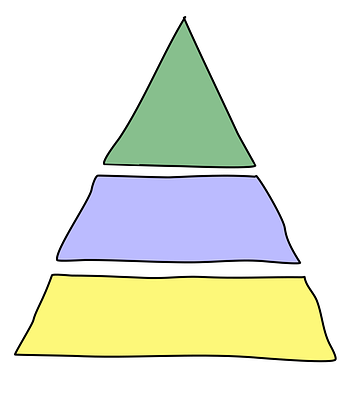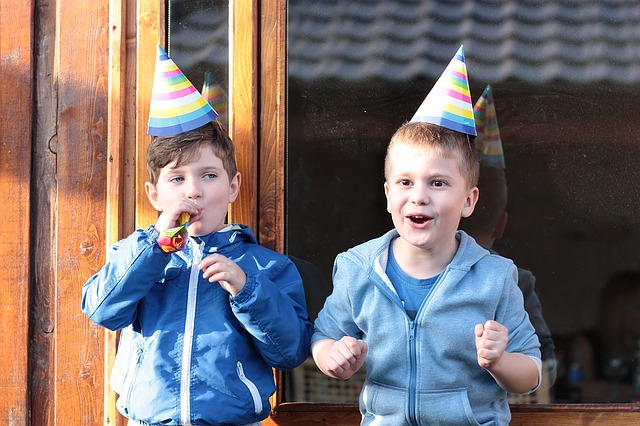
PBIS stands for Positive Behavior Intervention and Supports -- a framework for behavior management that focuses on (and celebrates) favorable behaviors. PBIS is proactive, motivating students to do the right thing from the get-go to reduce unwanted behaviors later on.
Schools implement PBIS to make behavior management straightforward for both students and staff. Students understand behavior expectations, and staff are clear on how to address specific issues. When implemented successfully, PBIS takes the guesswork out of behavior management so that classtime can be spent on learning and teaching, rather than discipline. These systems mean that problem behaviors are dealt with early on, reducing suspensions and expulsions and keeping students in school where they belong.
PBIS strategies support:
- Safe school environments
- Positive relationships
- Evidence based practices
- Collaborative decision making
- Behavior management at the classroom and school wide levels
- PBIS professional development or training for staff members
Watch the video below for a teacher’s take on PBIS.
What is the PBIS Pyramid?
A multi-tiered system of support (MTSS), sometimes referred to as the PBIS Pyramid, is used to address students' academic and social emotional needs. The pyramid is broken into three tiers:

- Tier 1 universal positive behavior support strategies should be used with every student. These are proactive measures that teach behavior and routines, and reward positive behaviors.
- Tier 2 supports address problem behaviors for students who aren't responding to tier 1 supports. They are focused on students at risk for continuing behavior issues. Programs may include small group behavior instruction (similar to RTI). Students and staff identify problem behaviors then choose an appropriate replacement behavior. A system is then put into place to monitor the student's progress.
- Tier 3 behavior interventions are targeted at students exhibiting extreme and/or ongoing problem behaviors. Tier 3 supports happen at the individual level, and may involve the wider community, like administrators and family members. A tailored plan is created with the student's input, and is reviewed or adjusted until the student's behavior (and academic achievement) goals are met.
What are PBIS rewards?
PBIS incentives are used to reinforce positive student behaviors. In many schools, this takes the form of a ticket system, where students earn tokens when they demonstrate positive behaviors. Tickets can be exchanged for things like more recess time, or consumables like stickers or pencils.

Successful reward programs are clearly defined. Students know how to earn tickets and what types of rewards are available to them. But rewards are a balancing act: it's important that students understand why these behaviors are important in the classroom community.
We hope that our students would always be intrinsically motivated to learn. But external motivators give students something tangible to work towards. Much like the promise of a coffee on the ride home at the end of a long day of teaching, rewards can give students the extra push they need to keep going when the going gets tough.
What you offer your students is up to you. PBIS reward ideas include:
- Choose your seat for the day
- Be a teacher's helper
- Healthy snacks
- Pens, pencils, stickers, games
- Listen to music
- Classroom party
- Donated items from local businesses
What does PBIS look like in your school or classroom this school year? What incentives work for you and your students? Tweet us @AlludoPlay.
Resources
PBIS.org (Supported by the Department of Education OESP)
The PBIS Technical Assistance Center offers educators training, evaluation and research resources to improve PBIS implementation. Learn about PBIS news, upcoming events and new policies. Find videos, trainings, tools and more.
PBIS World is full of resources on creating a positive school climate at every tier of the PBIS Pyramid. The site includes information on many areas of PBIS, like behavior contracts, rewards, active listening, data tracking and tips on avoiding suspensions.
Get insights from educators, psychologists and thought-leaders around the country on their PBIS programs. The blog covers everything from preschool PBISt o absenteeism, school-wide value systems to goal-setting for students.
This policy brief from the National Education Association covers PBIS supports at the school-wide, individual, classroom and non-classroom levels. These include things like reinforcements, supervision and creating leadership teams. The brief covers the history of PBIS, and current PBIS goals for teachers and school districts.
Earn Continuing Education Units with Alludo & Fresno Pacific University
Earn Continuing Education Units from Fresno Pacific University!


